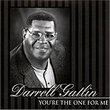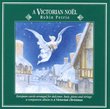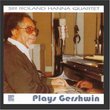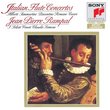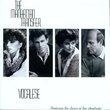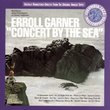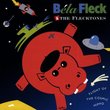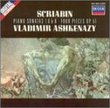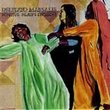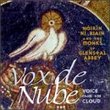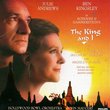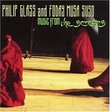| All Artists: Golub Kaplan Carr Trio Title: Dvorak: Piano Trios Members Wishing: 0 Total Copies: 0 Label: Arabesque Recordings Original Release Date: 1/1/1999 Re-Release Date: 3/20/2009 Genre: Classical Style: Chamber Music Number of Discs: 2 SwapaCD Credits: 2 UPC: 026724672620 |
Search - Golub Kaplan Carr Trio :: Dvorak: Piano Trios
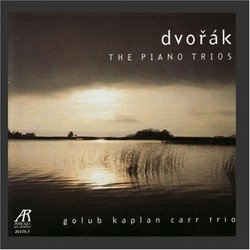 | Golub Kaplan Carr Trio Dvorak: Piano Trios Genre: Classical Dvorák: The Piano Trios by Golub Kaplan Carr Trio |
Larger Image |
CD DetailsSynopsis
Album Description Dvorák: The Piano Trios by Golub Kaplan Carr Trio Similar CDs
Similarly Requested CDs
|
CD ReviewsA great complete set Alan Lekan | Boulder, CO | 02/25/2006 (5 out of 5 stars) "There are several fine complete sets of Dvorak's four piano trios: The Beaux Arts Trio, The Fontanay Trio, The Suk Trio and this one. Additionally, The British Florestan Trio made a fine recording of just the last two trios (the most mature and musically rich) if you are fans of that wonderful ensemble as I am. These are all great choices except the sound is not as ideal with the Beaux Arts Trio or Suk Trio due to age (according to Penguin Guide who, in their politeness, if they hint the sound is sub-standard, it always is that way). I have not heard the Suk Trio (hard to find) but many critics find their readings the pinnacle of Dvorak's Czech expression. But, if you figure in cost, musianship, sound quality and getting all four trios, this set by G-K-C rises to the top. In fact, Penguin Guide rated their recording higher than the Suk and Beaux Arts Trios and cited nothing deficient at any level.
I would agree as I found their playing really of a high quality and attractive. In the highlight "Dumky" Trio, they are beautifully expressive and well-paced in the slower "Dumka" movements and have an authentic, Czech-like spirit in the faster contrasting Dumka interludes and in the powerful F-minor Trio. The overall result of this approach in the "Dumky" Trio in E-flat is magnificant and has made it the most popular of the four by far. But not far behind must be the F-minor Op. 65 with its huge scope, monumental length and dramatic emotive tone - something of Dvorak's "Hammerklavier of trios" (to compare it to Beethoven). The earlier trios (Op. 21 and 26) may be less-mature works but clearly reveal the characteristic Slavic flavor of Dvorak in a less-ambitious but quite appealing way - full of tuneful themes, skillful development and dynamic scherzo movements. None of these compositions are substandard and all have something to say musically. By the way, "Dumky" (the plural of "Dumka") is a term for a particular form of folk music of Slavic (or Ukranian) origin. The form is one of a returning melancholy mood with contrasting episodes of relief from the melancholy. Like Dumka poetry, Dumka music has an epic or ballad theme whose story is told in contrasting episodes of lament/melancholy and peacefulness - although Dvorak often contrasted lament with exuberance in his music. Popular in Poland and Bohemia, Dumky were encorporated by many composers in the 19th century including Lizst and Tchaikovsky along with Dvorak here. There is much to like about this recording and very little to criticize. Golub's piano is dynamic and sparkles with life, Carr's cello exudes remarkable plaintive and sensuous tones while Kaplan's violin lines are elegant, poetic and well-shaped. They play this music well. Regarding the sound ambiance ... I have been impressed with a couple other Arabesque recordings I have (Ravel's chamber music featuring Jaime Laredo is quite brilliant) and this one is no exception with its vivid, clear and well-balanced sound quality. The projection is close for clear instrument separation but with enough "breathing space" for full tonal/timbre developement. I've found several labels like this one that are not very well-known but are no second-fiddle to any major label in terms of superb sound quality. So, lots of things come together to make this a most recommended choice for Dvorak's trios out of many fine alternatives." |

